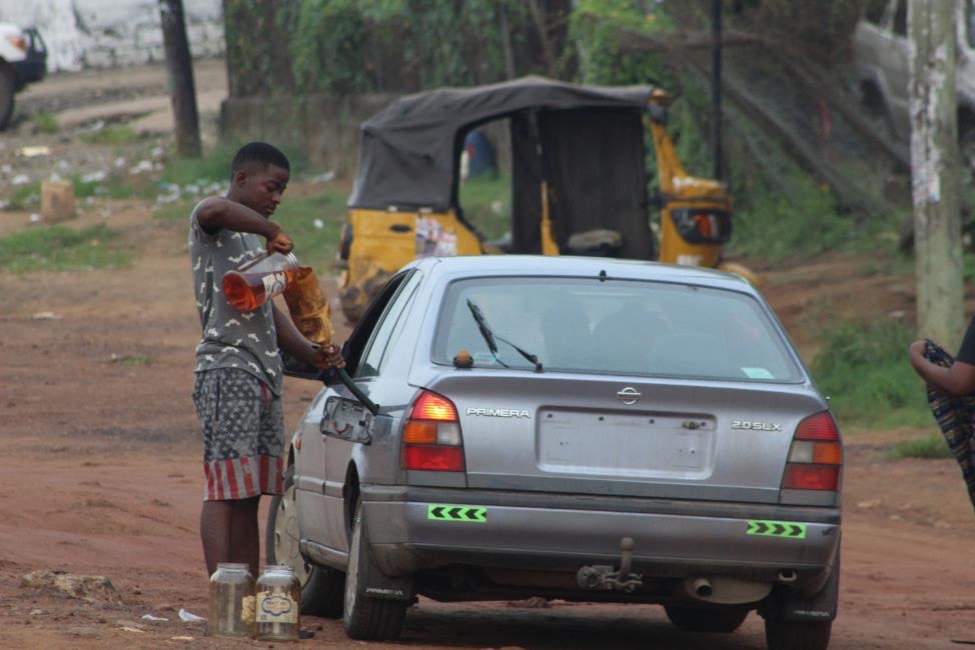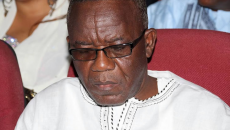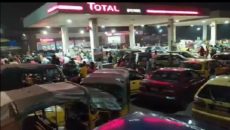MONROVIA, Montserrado – The price of petroleum products such as gasoline and diesel has increased sharply on the Liberian market.
That increase has only affected the Liberian dollar equivalent price, however, it is likely to have a significant impact on transportation fares.
A tour across Monrovia revealed that major distributors such as Total, NP, Aminata, and Super Petroleum are now selling a gallon of gasoline for L$595 (US$3.30) while fuel is sold for L$665 (US$3.69).
Some taxi drivers who spoke to The Bush Chicken said they had seen the price of gas increase since last week Friday when it was L$540 (US$3.00) per gallon to as high as L$595.
“We were never informed by the government about the recent increased in the prices of gas and fuel,†David Farkollie a taxi driver told this news outlet.
Farkollie said the abrupt increase in petroleum prices is an inconvenience to commercial drivers.
He said taxi drivers are now increasing their transportation fares themselves and “some passengers at times refuse to pay the fare charge which results to exchange of insults.â€
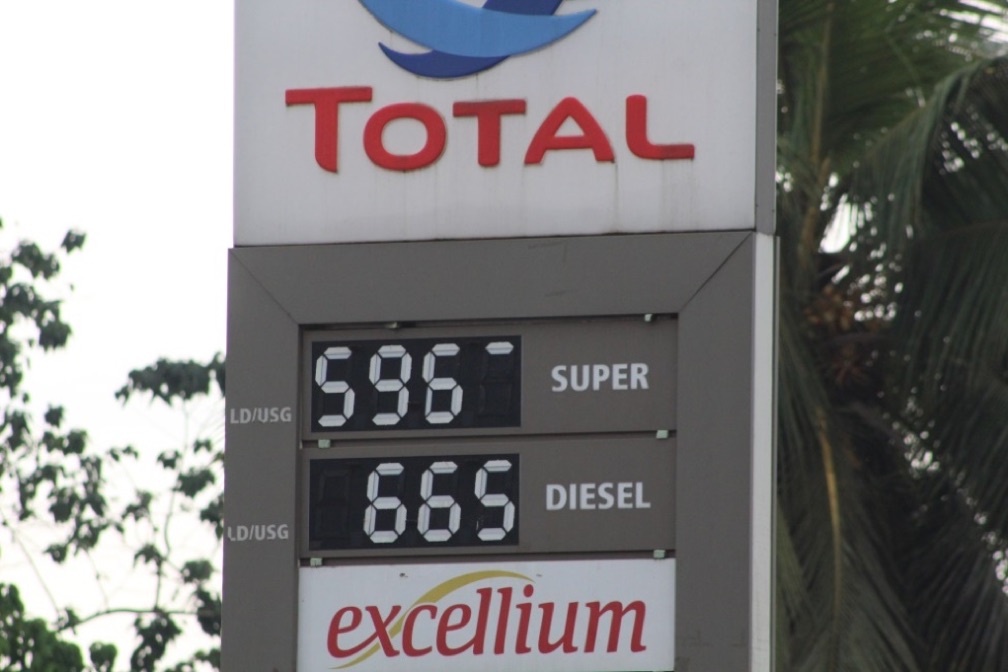
Total now sells a gallon of gasoline for L$595 and diesel is sold for L$665. Photo: Zeze Ballah
At the Liberia Petroleum Refinery Corporation, the government agency responsible for supplying the market with petroleum products, public relations director Bill Morris said there has been no increase in the price of gas.
“A gallon of gasoline is still sold for US$3.30 on the local market,†Morris said, adding that if there were a real increase, a circular would have been posted on the agency’s website and Facebook page.
The concerted increase in the fixed Liberian dollar equivalent for petroleum products appears designed to allow retailers to recuperate the equivalent of US$0.30 per gallon of gas they were losing due to the depreciating value of the Liberian dollar.

Street retailers of gasoline have also increased their prices. Photo: Zeze Ballah
However, without a coordinated effort from the government to also publish a table of new transportation fares, transport service providers are hiking fares significantly and erratically, blaming the increase in fuel prices.
The government controls the fares for shared taxis, but it is often slow to respond to the depreciation of the local currency and an increase in petroleum prices.
Since the last official change in transportation fares in February this year, the Liberian dollar has depreciated by over 13 percent.
Commuters like Sarah Jones, a petty trader, and resident of Paynesville, are blaming the government for being slow to regulate transport fares.
“The government has on several occasions deliberately refused to make public the transportation fares before any increase in petroleum products takes effect,†she said.
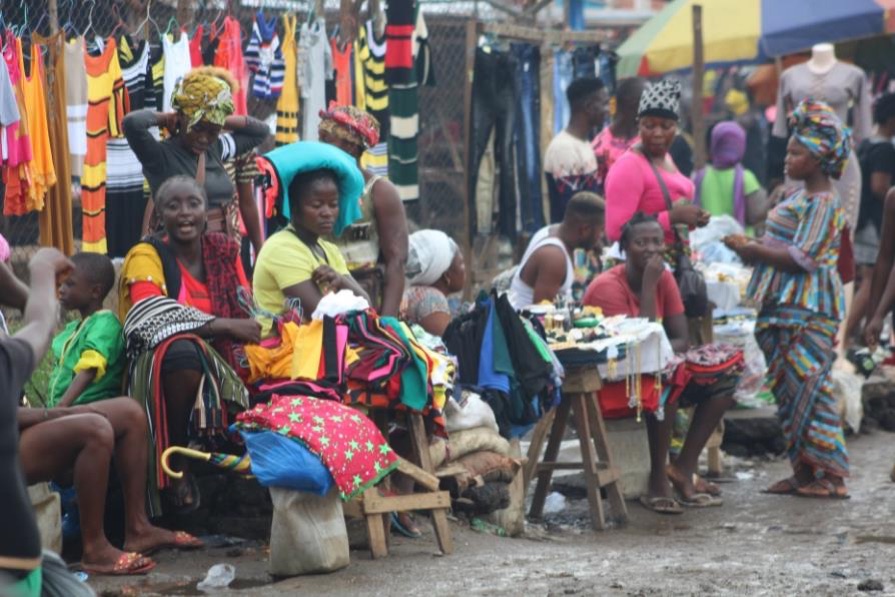
Sarah Jones (red blouse) wants the government to be more assertive in setting transportation fares. Photo: Zeze Ballah
‘This is unfair on the part of the government to its citizens,†Jones said.
She stressed that the government is under obligation to publicize new fares before any increase in petroleum products takes effect, because “the abrupt increase has added to the hardships faced by ordinary Liberians.â€
“This silence on the part of the government in the wake of the abrupt increase in petroleum products is unfair and irresponsible,†she added, noting that life has become unbearable for many ordinary Liberians.
Due to the increase in petroleum products, Jones said commercial drivers and petty traders have no alternative but to also increase their prices.
The official rate at the Central Bank is L$1 to US$180; however, on the streets, rates as high as L$1 to US$187 can be found easily. The effect of the depreciation in Liberian dollar value is often felt harder by the poorest of Liberians, who earn all their income in the local currency.
Featured photo by Zeze Ballah
